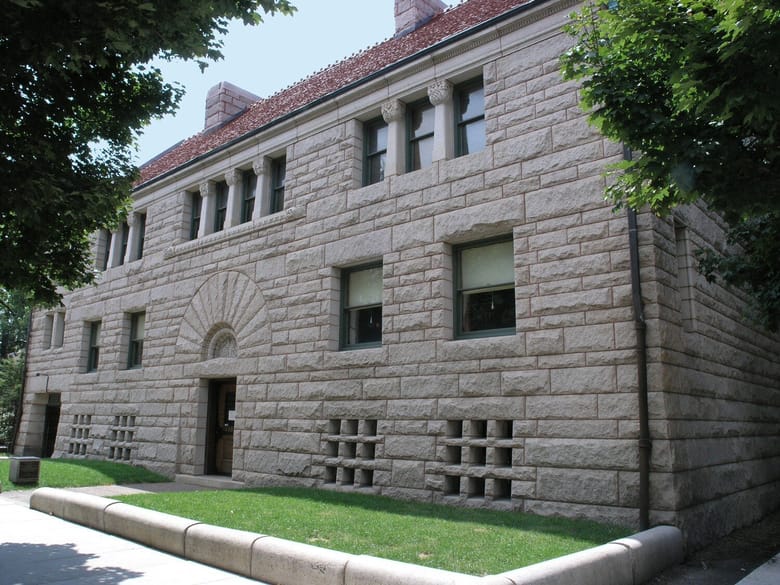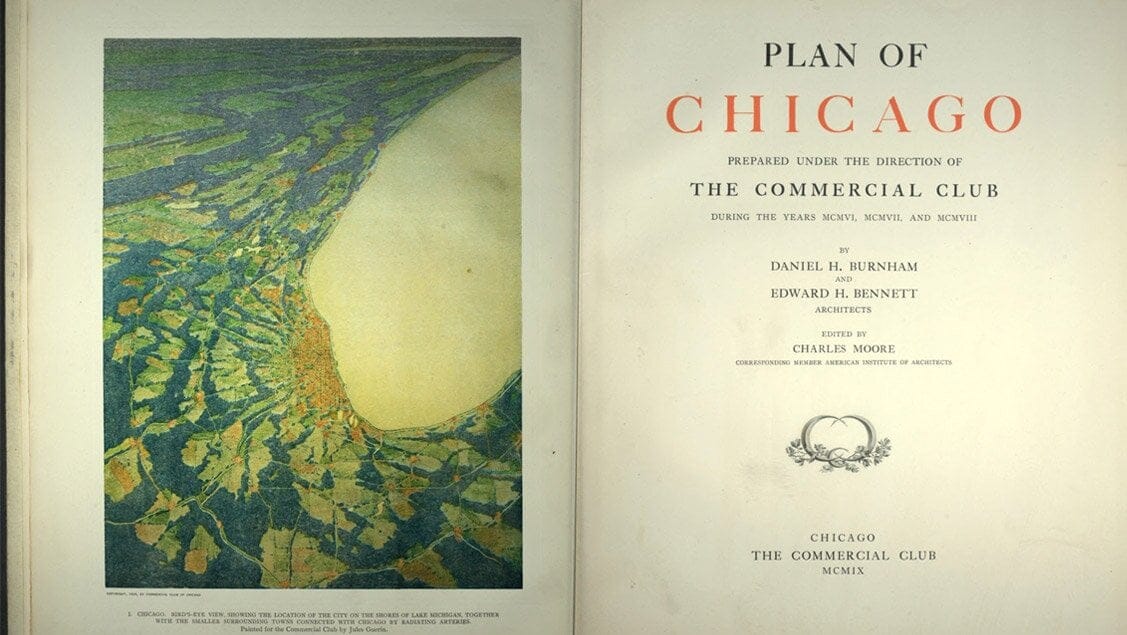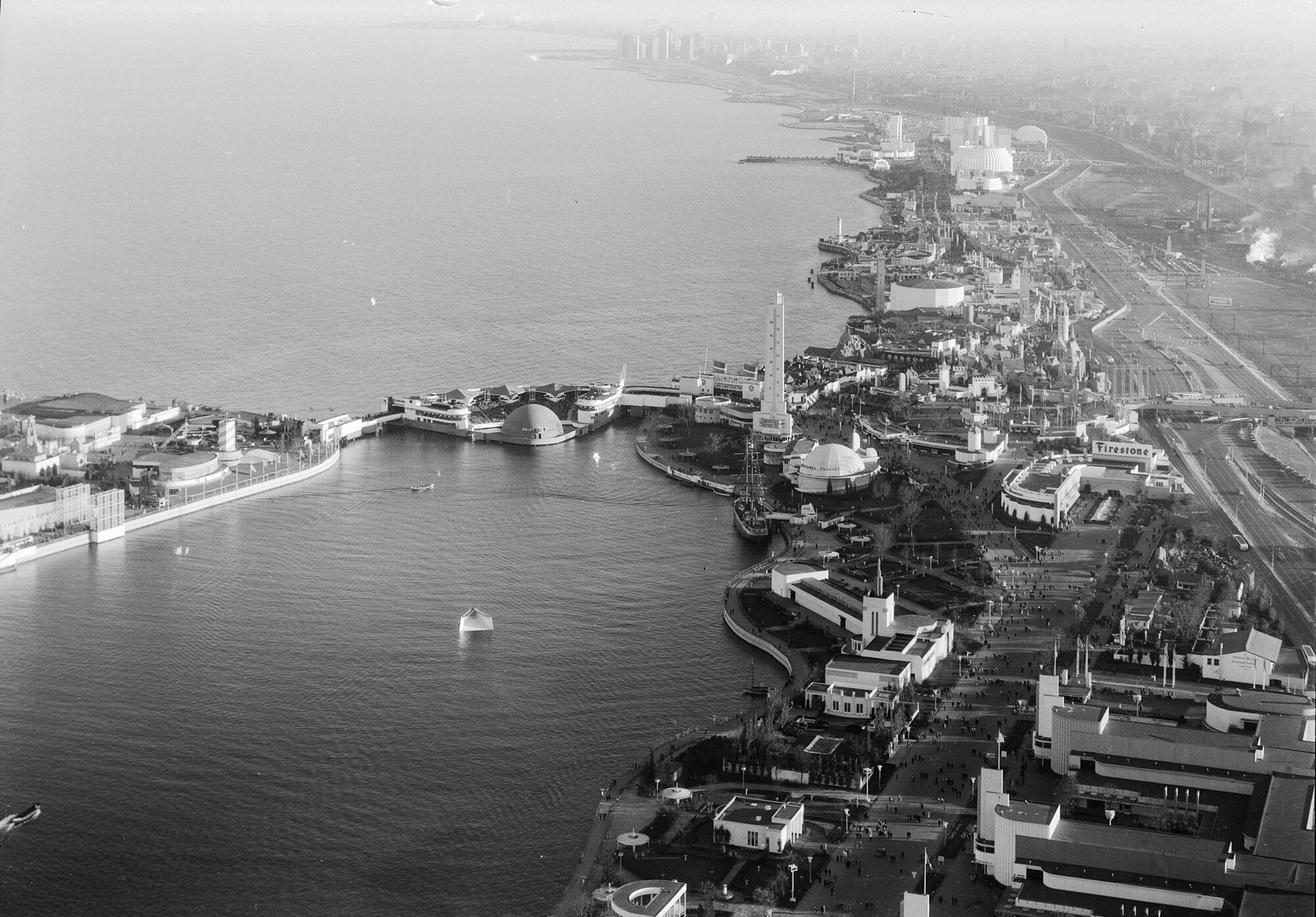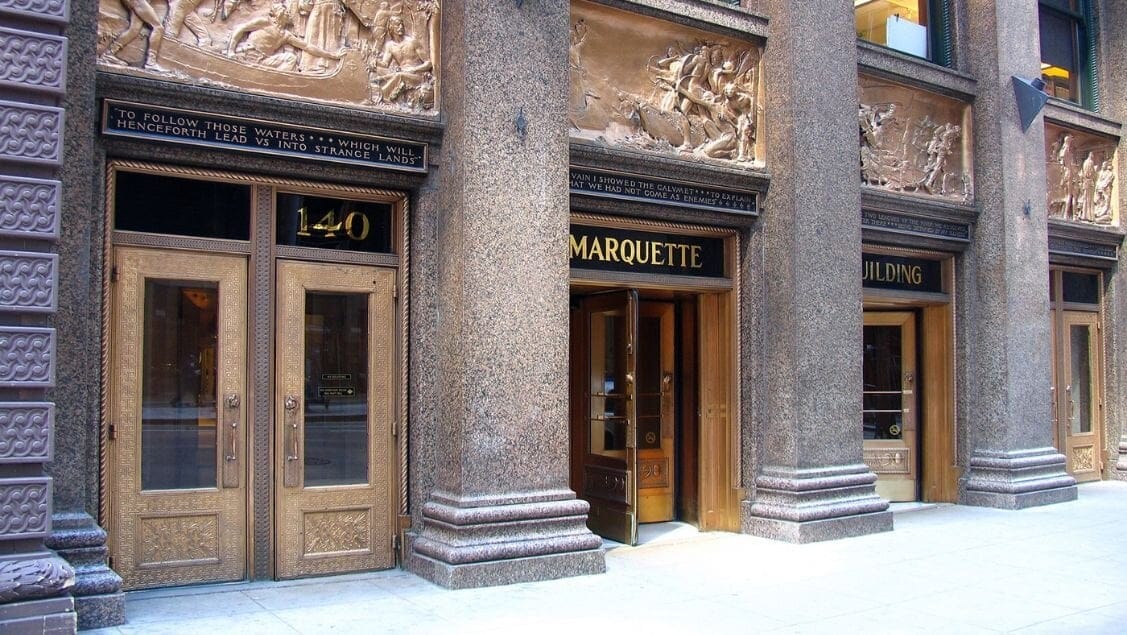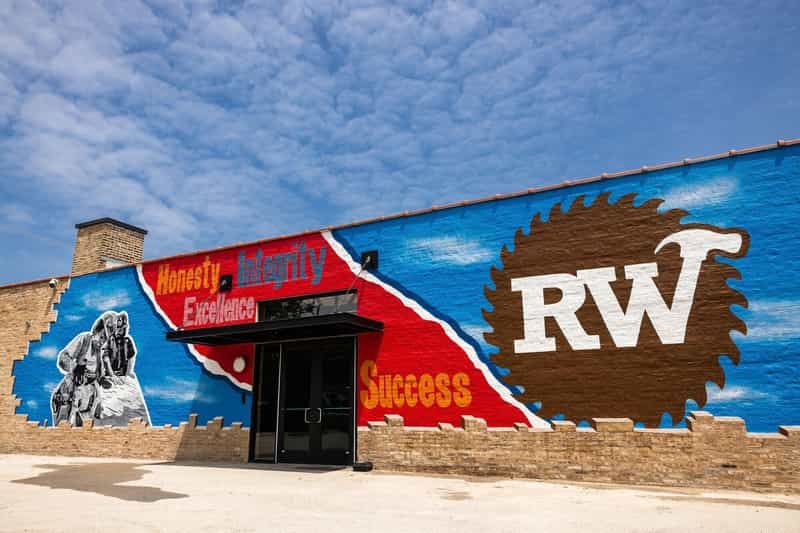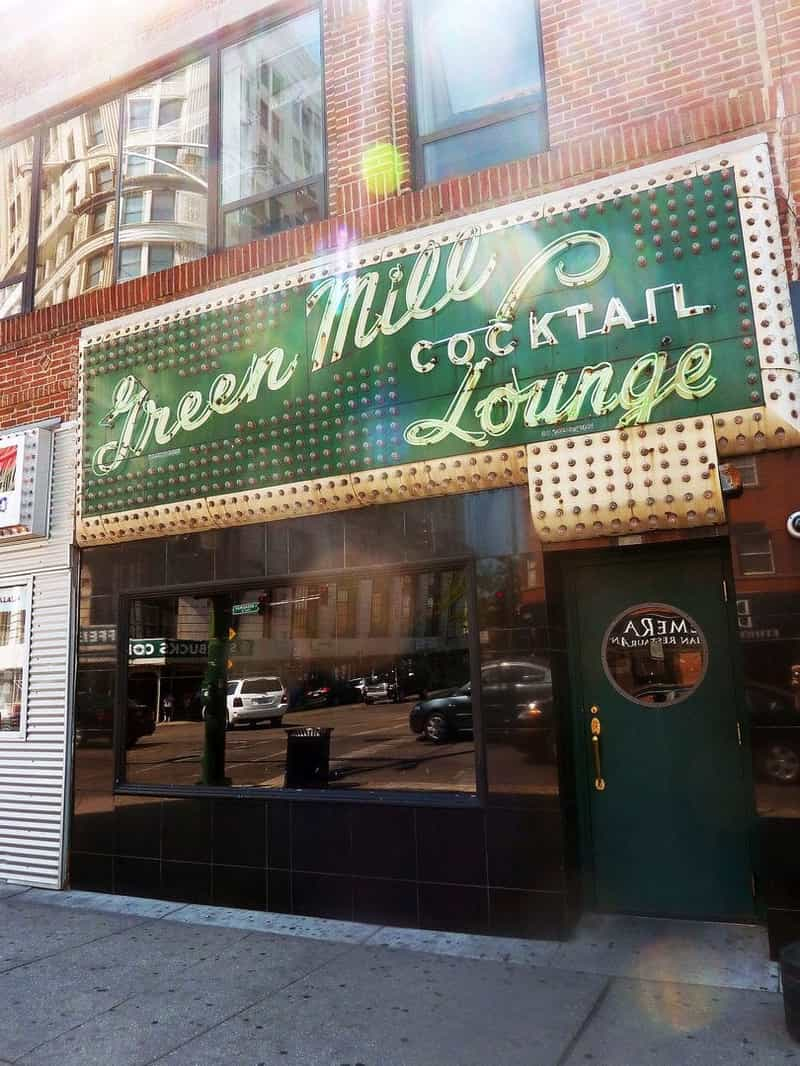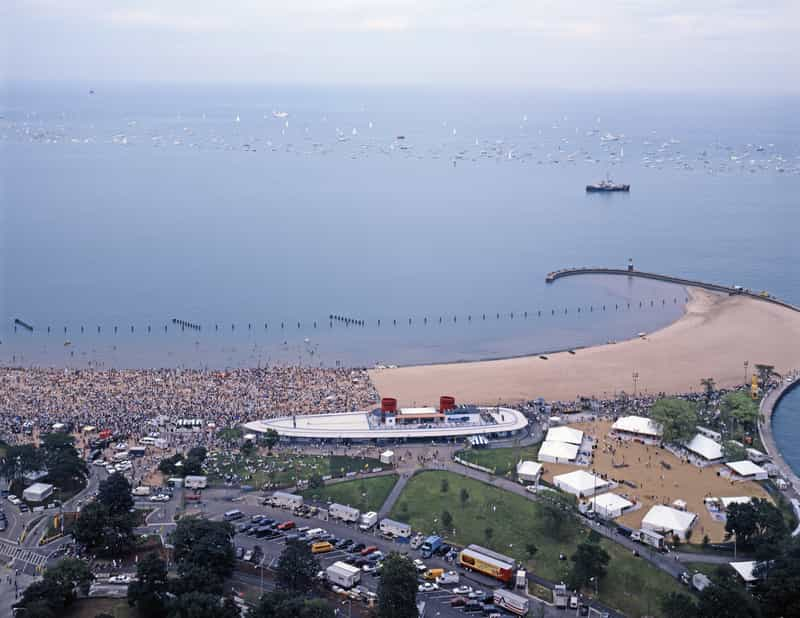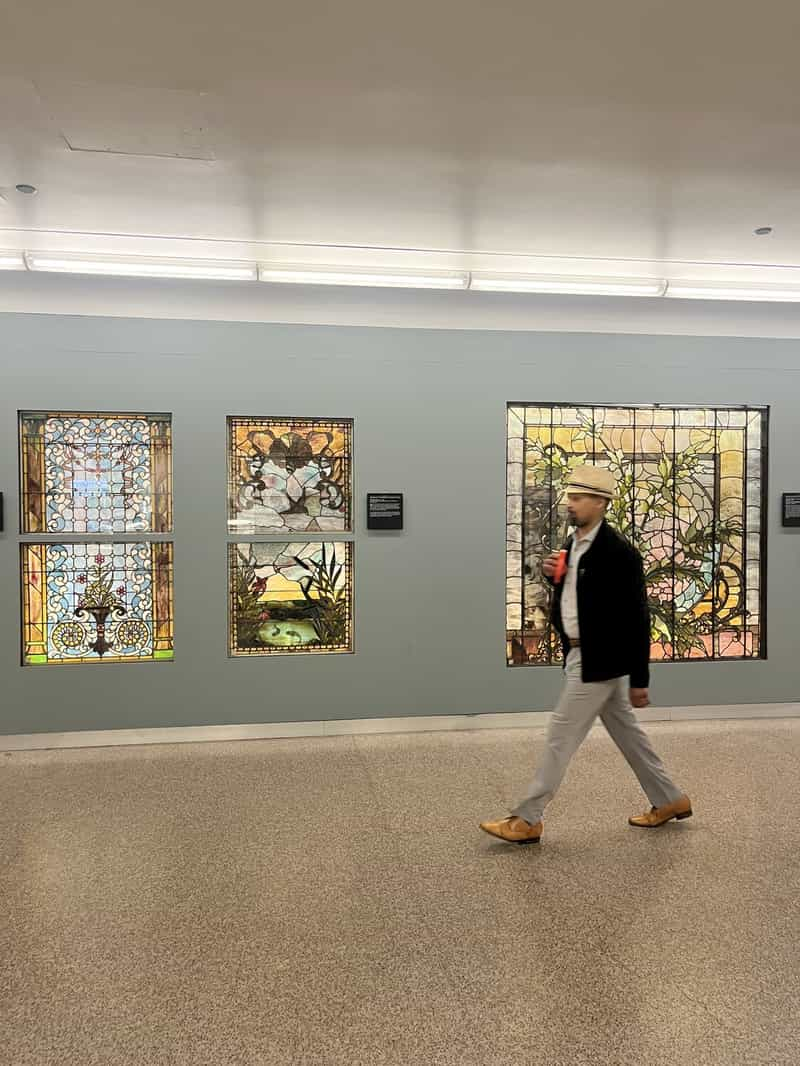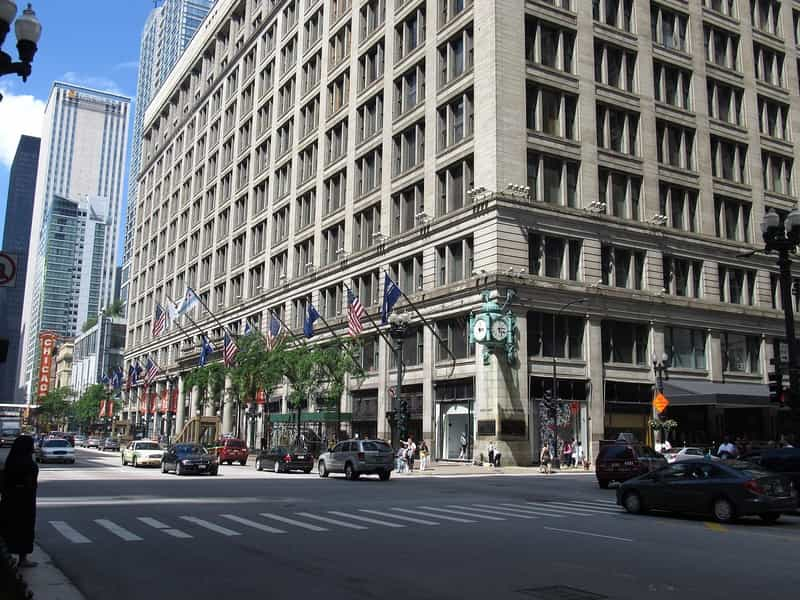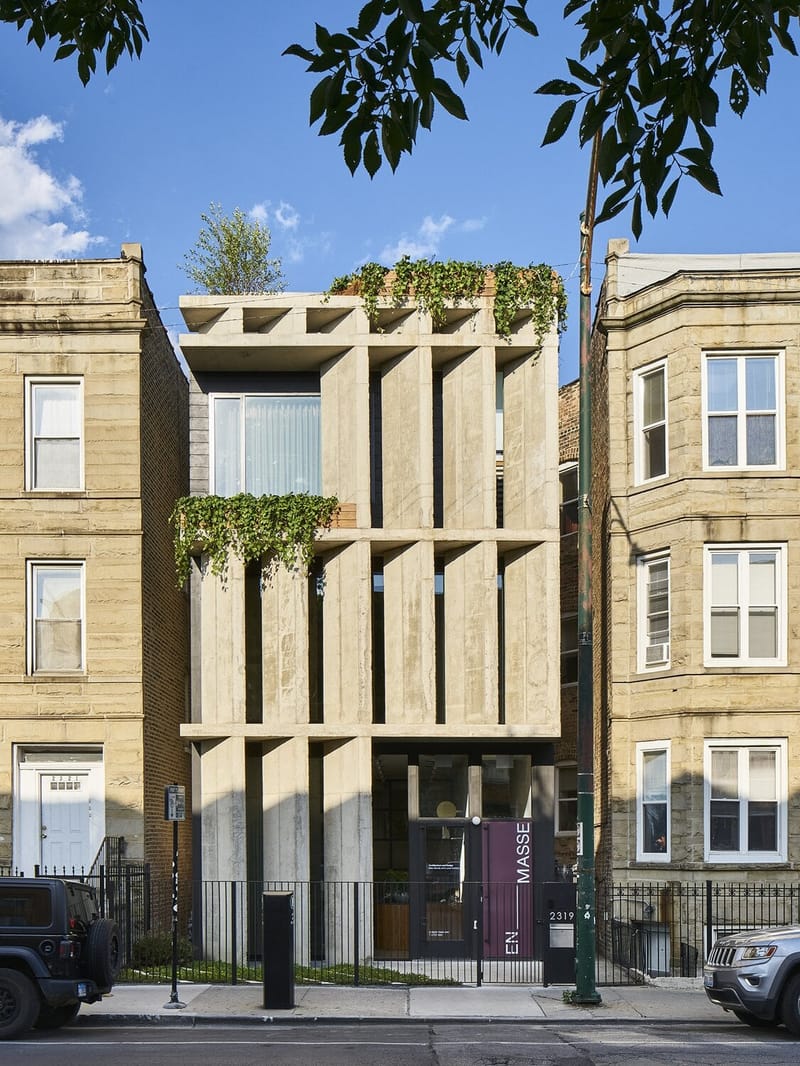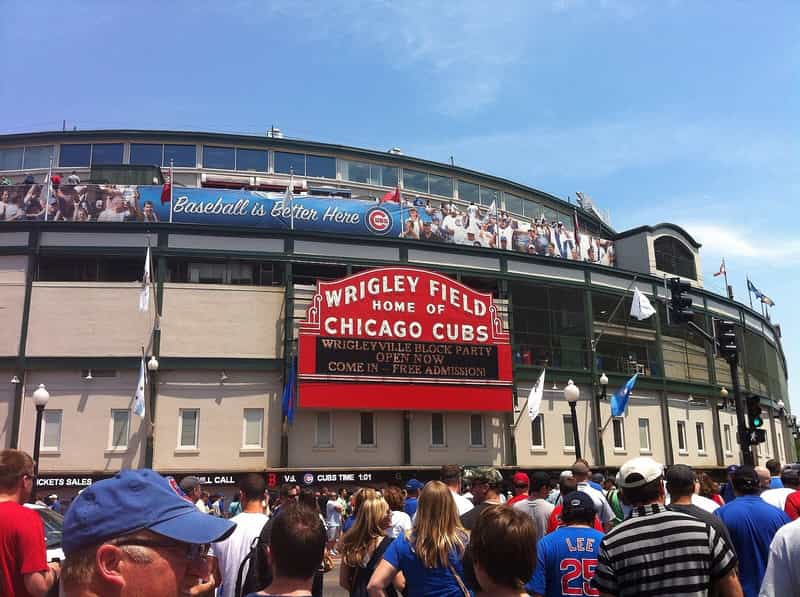Masonry
Glessner House
Masonry is the craft of building structures from individual units, which are often laid and bound together using mortar. These units can be made from various materials such as brick, stone, concrete block, glass block, and adobe. The term "masonry" can refer to both the process and the units themselves.
Masonry has played a crucial role in architecture throughout history. The Romans introduced new materials like concrete and developed techniques such as the arch, vault, and dome, which significantly advanced masonry construction. During the Middle Ages, brick and stone masonry flourished, particularly in the construction of European cathedrals and castles. The intricacies of Gothic masonry showcased the versatility and flexibility of the craft.
Modern masonry materials include concrete blocks, which are manufactured to be strong and lightweight. These materials are used in a variety of applications, from structural walls to decorative facades.
EXAMPLES IN CHICAGO:
- Monadnock Building: Completed in 1891, the north section of the Monadnock Building is one of the most famous examples of masonry in Chicago. It is the tallest load-bearing brick building in the world, with walls that are six feet thick at the base. The building's design showcases the strength and durability of masonry, as well as its aesthetic appeal.
- Tribune Tower: The Tribune Tower, completed in 1925, is another iconic masonry structure in Chicago. This neo-Gothic skyscraper features intricate stone carvings and a facade made of Indiana limestone. The building's design was inspired by European cathedrals, highlighting the historical significance and beauty of masonry.
- Chicago Water Tower: Built in 1869, the Chicago Water Tower is one of the few structures that survived the Great Chicago Fire of 1871. Made of Joliet limestone, the Water Tower is a symbol of the city's resilience and a testament to the durability of masonry construction.

